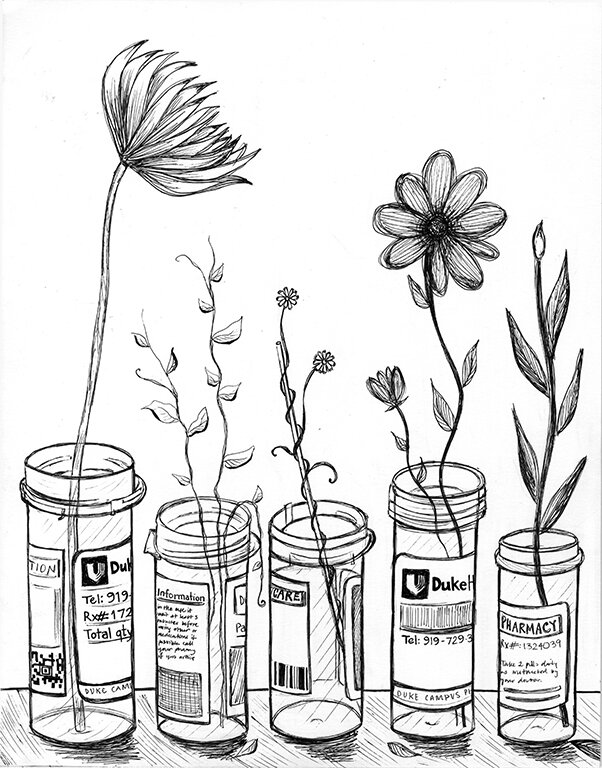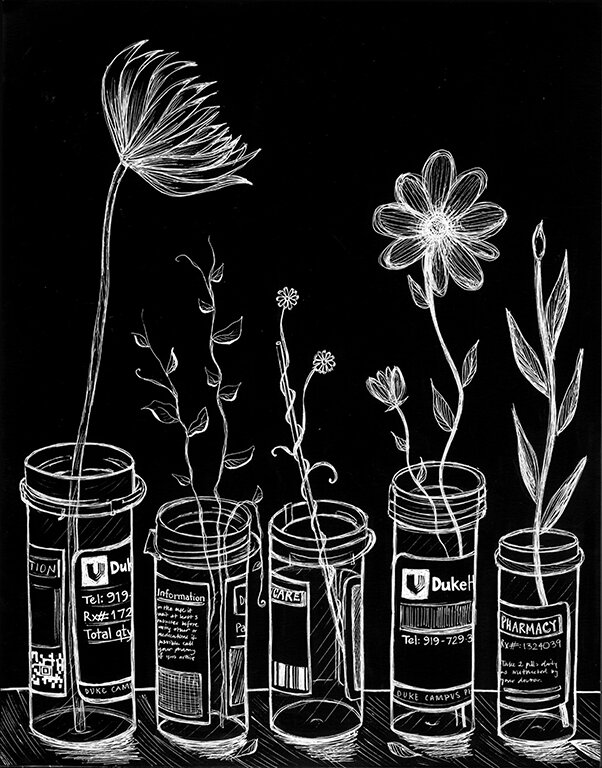RECOVERY BLOOMS | Sujal Manohar
My visual arts honors thesis about mental health was motivated by the countless stories I heard during my time at Duke University. Aiming to create art that reflected my community, I conducted fifteen interviews with Duke students, staff, and mental health professionals. These conversations served as the inspiration for a series of ink drawings and photographs, with intricate detail and layers of meaning. I enjoy creating tangible, visual depictions of abstract issues, prompting the viewer to grapple with something previously unseen. In this series, I created my drawings on a white background and then inverted the image, showing how there are often multiple ways to view the same situation. One version may resonate more with a particular viewer.
“Recovery Blooms,” highlights the healing process after a mental illness. One of my interviewees mentioned the role of medication in her recovery from severe depression, so I fashioned pill bottles as planters, enabling flowers to grow and thrive. The type and height of each flower varies, symbolizing how the care needed and healing process looks different for everyone. With the right treatment and support, everyone can bloom.
Sujal Manohar lives and thrives at the intersection of the arts and sciences. A Duke University graduate with degrees in neuroscience and visual arts, she does not view these fields as mutually exclusive. Art is a tool to connect with others and help them heal, as well as an avenue for health-related advocacy and awareness. Manohar has designed collaborative murals in healthcare settings, taught art to pediatric patients, and led art gallery tours for adults with dementia. Her work has been displayed at the Texas State Fair, Duke Wellness Center, and Kenan Keohane Gallery. Currently, Manohar serves as a Hart Fellow and AmeriCorps Artist in Residence at Imagine Art, an art studio for people with disabilities. She plans to start medical school in 2021.


